Teeth grinding is a problem that affects millions of Americans every single night. The medical term for this subconscious habit is bruxism, which encompasses both clenching and grinding motions. This habit can cause severe damage to your oral health.

Teeth grinding, also known as bruxism, is a common condition where a person clenches or grinds their teeth involuntarily. The exact cause of teeth grinding is not fully understood, but it is believed to be multifactorial, involving a combination of physical, psychological, and lifestyle factors. Here are some possible reasons why people grind their teeth:
- Stress and anxiety: High levels of stress, tension, or anxiety can contribute to teeth grinding. It often occurs during sleep as a subconscious response to stress.
- Abnormal bite or missing teeth: Teeth grinding can be a result of misaligned teeth or an abnormal bite. When the teeth do not fit together properly, it can lead to grinding or clenching.
- Sleep disorders: Sleep apnea, a disorder characterized by interrupted breathing during sleep, has been linked to teeth grinding. Grinding can be the body’s way of attempting to open the airway.
- Medications and substances: Certain medications, such as certain antidepressants or stimulants, have been associated with teeth grinding as a side effect. Additionally, the use of substances like caffeine, alcohol, or recreational drugs can increase the likelihood of grinding.
- Lifestyle factors: Habits like excessive smoking, alcohol consumption, or the use of recreational drugs may increase the risk of teeth grinding.
- Malocclusion: Malocclusion refers to a misalignment of the teeth or jaws, such as an overbite or underbite. This misalignment can contribute to teeth grinding.
- Age and genetics: Bruxism can be more common in certain age groups, such as children who are experiencing the growth and development of their teeth, as well as older adults. There may also be a genetic predisposition to teeth grinding.
-
Product on sale
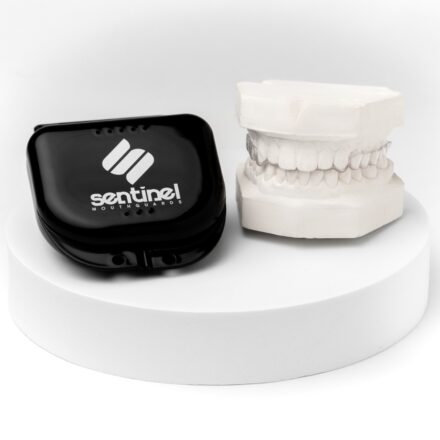 No-Show Day Mouth GuardOriginal price was: $149.00.$129.00Current price is: $129.00.
No-Show Day Mouth GuardOriginal price was: $149.00.$129.00Current price is: $129.00. -
Product on sale
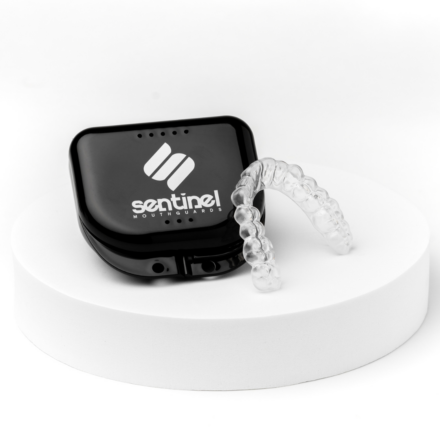 Durability Mouth Guard for Heavy Teeth GrindingOriginal price was: $215.00.$189.00Current price is: $189.00.
Durability Mouth Guard for Heavy Teeth GrindingOriginal price was: $215.00.$189.00Current price is: $189.00. -
Product on sale
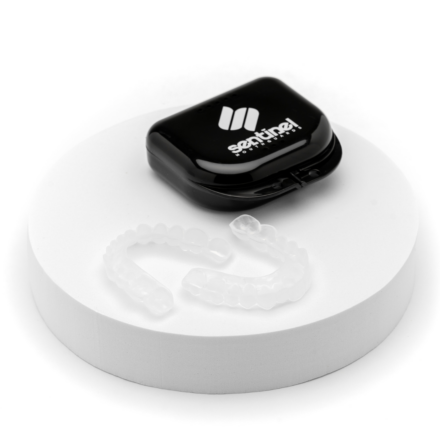 Tongue and Cheek Biting Relief Mouth GuardsOriginal price was: $189.00.$169.00Current price is: $169.00.
Tongue and Cheek Biting Relief Mouth GuardsOriginal price was: $189.00.$169.00Current price is: $169.00. -
Product on sale
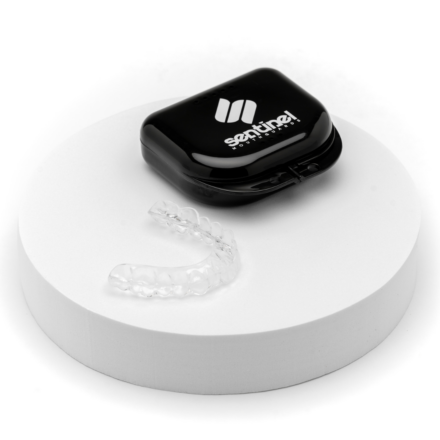 Custom Hard Night GuardOriginal price was: $169.00.$149.00Current price is: $149.00.
Custom Hard Night GuardOriginal price was: $169.00.$149.00Current price is: $149.00. -
Product on sale
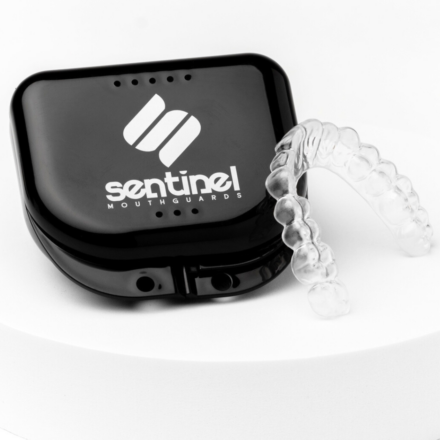 Custom Soft Night GuardOriginal price was: $149.00.$129.00Current price is: $129.00.
Custom Soft Night GuardOriginal price was: $149.00.$129.00Current price is: $129.00. -
Product on sale
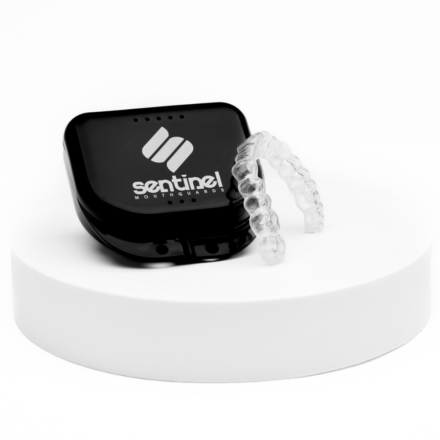 Custom Dual Laminated Night GuardOriginal price was: $169.00.$149.00Current price is: $149.00.
Custom Dual Laminated Night GuardOriginal price was: $169.00.$149.00Current price is: $149.00.
How do I stop grinding my teeth?
If you want to stop grinding your teeth, here are some strategies that may help:
- Stress management: Since stress and anxiety are common triggers for teeth grinding, finding effective ways to manage stress can be beneficial. Consider practicing relaxation techniques, such as deep breathing exercises, meditation, or yoga. Engaging in activities that you enjoy, like hobbies or exercise, can also help reduce stress levels.
- Avoid stimulating substances: Limit or avoid the consumption of substances that can contribute to teeth grinding, such as caffeine, alcohol, and recreational drugs. These substances can intensify muscle activity and increase the likelihood of grinding.
- Create a bedtime routine: Establish a relaxing routine before bed to promote better sleep and reduce the chances of grinding during the night. Avoid stimulating activities and electronic devices close to bedtime. Instead, engage in calming activities, such as taking a warm bath, reading a book, or listening to soothing music.
- Maintain a regular sleep pattern: Consistency in your sleep schedule can help improve sleep quality and reduce the likelihood of teeth grinding. Aim for a consistent sleep routine, going to bed and waking up at the same times each day.
- Dental mouthguard: Your dentist may recommend dental interventions to help alleviate teeth grinding. One common approach is the use of a mouthguard or splint, which is a custom-made dental device that fits over your teeth and provides a protective barrier. It helps to cushion the teeth and reduce the damage caused by grinding.
- Correcting dental problems: If malocclusion or other dental issues contribute to your teeth grinding, your dentist may suggest orthodontic treatment or other dental procedures to correct the alignment of your teeth or jaws.
- Stress reduction techniques: If stress is a significant factor in your teeth grinding, consider implementing stress reduction techniques such as therapy or counseling, stress management workshops, or relaxation exercises.
- Medication or muscle relaxants: In severe cases where other strategies have not been effective, your healthcare professional may prescribe medication or muscle relaxants to help relax the jaw muscles and reduce grinding.
Why is Teeth Grinding a Problem?
Teeth grinding can lead to irreversible damage to the teeth, gums, and jaw joints. The heavy forces of clenching and grinding put the teeth at risk for attrition (a gradual shortening and flattening of the teeth), abfraction (notching at the gum lines) and cracked teeth. These types of damage require expensive dental treatments to repair.
Some people suffer from irreversible gum tissue loss (gum recession) as a result of heavy grinding, and this may require extensive periodontal surgery to replace.
Many people also suffer from painful symptoms, like chronic headaches and facial pain. Persistent clenching and/or grinding may lead to damage in the temporomandibular Joints (TMJs). People suffering from TMJ dysfunction often have pain and/or a limitation in their chewing function and can bite the tongue or cheek.
Needless to say, teeth grinding is not a condition to ignore!
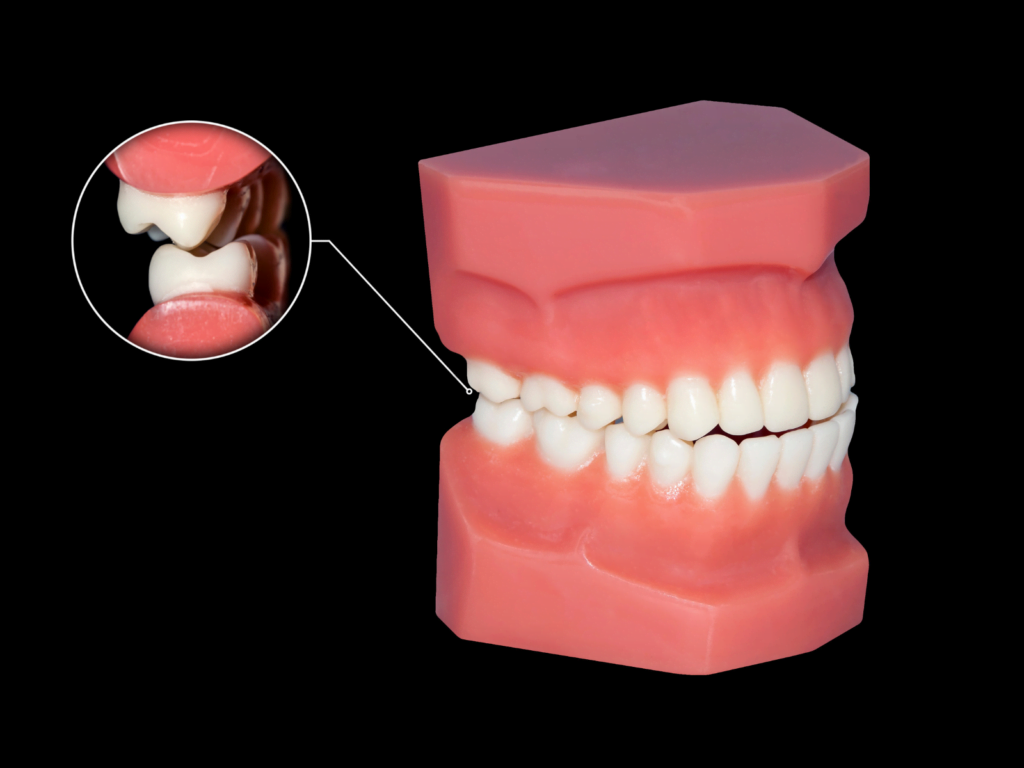
How do you know if your night guard is working?
To determine if your night guard is working effectively, consider the following indicators:
- Reduction in symptoms: A primary purpose of a night guard is to alleviate symptoms associated with teeth grinding, such as jaw pain, headaches, tooth sensitivity, and worn-down teeth. If you notice a decrease in these symptoms or their severity, it indicates that the night guard is likely providing some benefit.
- Improved sleep quality: Teeth grinding can disrupt sleep patterns, causing restless nights and frequent awakenings. If your night guard helps improve your sleep quality by reducing grinding noises or preventing teeth clenching, it suggests that the guard is functioning effectively.
- Protection of teeth and dental restorations: Check your teeth and dental restorations, such as crowns or fillings, regularly for signs of wear or damage. A well-fitting night guard should provide a cushioning effect and protect your teeth from the excessive forces of grinding. If you notice a decrease in tooth wear or damage, it indicates that the night guard is likely doing its job.
- Comfort and fit: A properly fitting night guard should be comfortable to wear and not cause any pain or discomfort. It should stay securely in place throughout the night without causing soreness or irritation in your jaw or gums. If you find the night guard comfortable and it maintains its fit over time, it suggests that it is functioning effectively.
- Feedback from your dentist: Regular dental check-ups allow your dentist to assess the condition of your teeth and evaluate the effectiveness of your night guard. Your dentist can examine any signs of tooth wear, evaluate the fit of the night guard, and provide feedback on its effectiveness.
If you experience persistent symptoms or notice signs of teeth grinding despite using a night guard, it’s important to consult your dentist or healthcare professional. They can evaluate the situation, make necessary adjustments to your night guard, or recommend alternative treatments if needed.
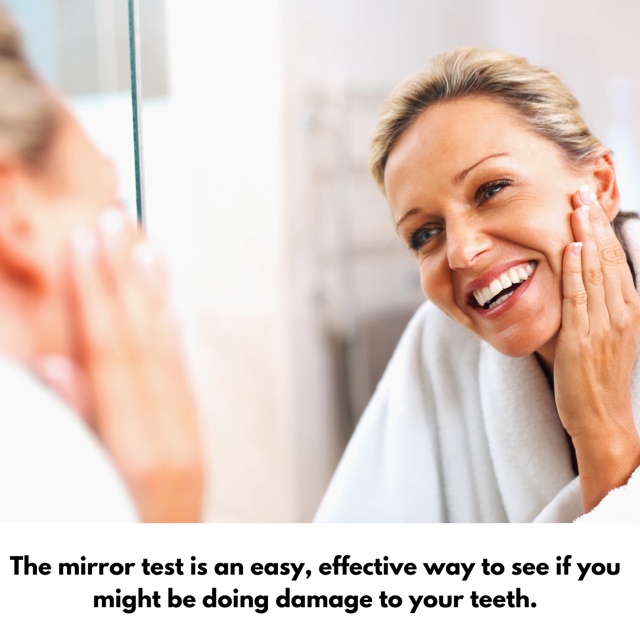
Can a night guard make you grind more?
A properly fitted and designed night guard should not make you grind more. The purpose of a night guard is to provide a protective barrier between your upper and lower teeth, cushioning them and preventing excessive wear and damage caused by teeth grinding or clenching. However, there are a few scenarios where a night guard may potentially lead to increased grinding:
- Poor fit or improper design: If a night guard does not fit well or is not properly designed for your specific needs, it could potentially interfere with your bite alignment or jaw position. This misalignment may trigger or exacerbate grinding. It is important to have a custom-fitted night guard made by a dental professional to ensure an optimal fit and function.
- Adjustment period: When you first start using a night guard, it may feel unfamiliar in your mouth, and it can take some time to adjust to wearing it while sleeping. During the initial adjustment period, you may experience a temporary increase in grinding or clenching. This is usually a transient response and should subside as you become accustomed to wearing the night guard.
- Underlying causes not addressed: A night guard alone may not address the underlying causes of teeth grinding, such as stress, anxiety, or certain medical conditions. If these factors are not effectively managed, the night guard may provide temporary relief but not fully resolve the grinding. It’s important to identify and address any contributing factors to manage teeth grinding comprehensively.
If you suspect that your night guard is causing increased grinding or if you experience any new or worsening symptoms after starting to use a night guard, it is recommended to consult with your dentist or healthcare professional. They can evaluate the fit and effectiveness of the night guard and make any necessary adjustments or recommendations to ensure its proper function and your comfort.
What Can I Do About Teeth Grinding?
Teeth grinding is difficult to prevent since the causes are often multi-factorial. You may be able to correct bite problems or issues with muscle hyperactivity. Joint problems and airway problems are more difficult to address. Some people are never able to get their stress to a manageable level.
If you are taking a prescription medication that causes teeth grinding, you can speak to the prescribing doctor about the possibility of altering your dosage.
The best approach to teeth grinding is protecting yourself against the potential damage it can cause. You can do this by wearing a mouthguard that covers your teeth, separating them from the opposing teeth and reducing the amount of force that you can create between your upper and lower jaws. It is important to see your dentist and discuss your options with him or her to get the best protection. Some people find great success in lab-made mouthguards, like those made by Sentinel Mouthguards.
Wearing a mouthguard during sleep provides multiple benefits to those suffering from teeth grinding. Many people experience relief from headaches and facial pain. Any coverage over the teeth will protect them from the dangers of attrition, abfraction and tooth fractures. The reduction in muscle forces can also help to decompress the jaw joints.
What is the Most Important Thing to Know about Teeth Grinding?
Teeth grinding can cause serious, irreversible damage to your teeth and jaws. You can protect yourself against this damage by wearing a custom-made mouthguard. See your dentist if your symptoms do not improve after wearing a mouthguard.

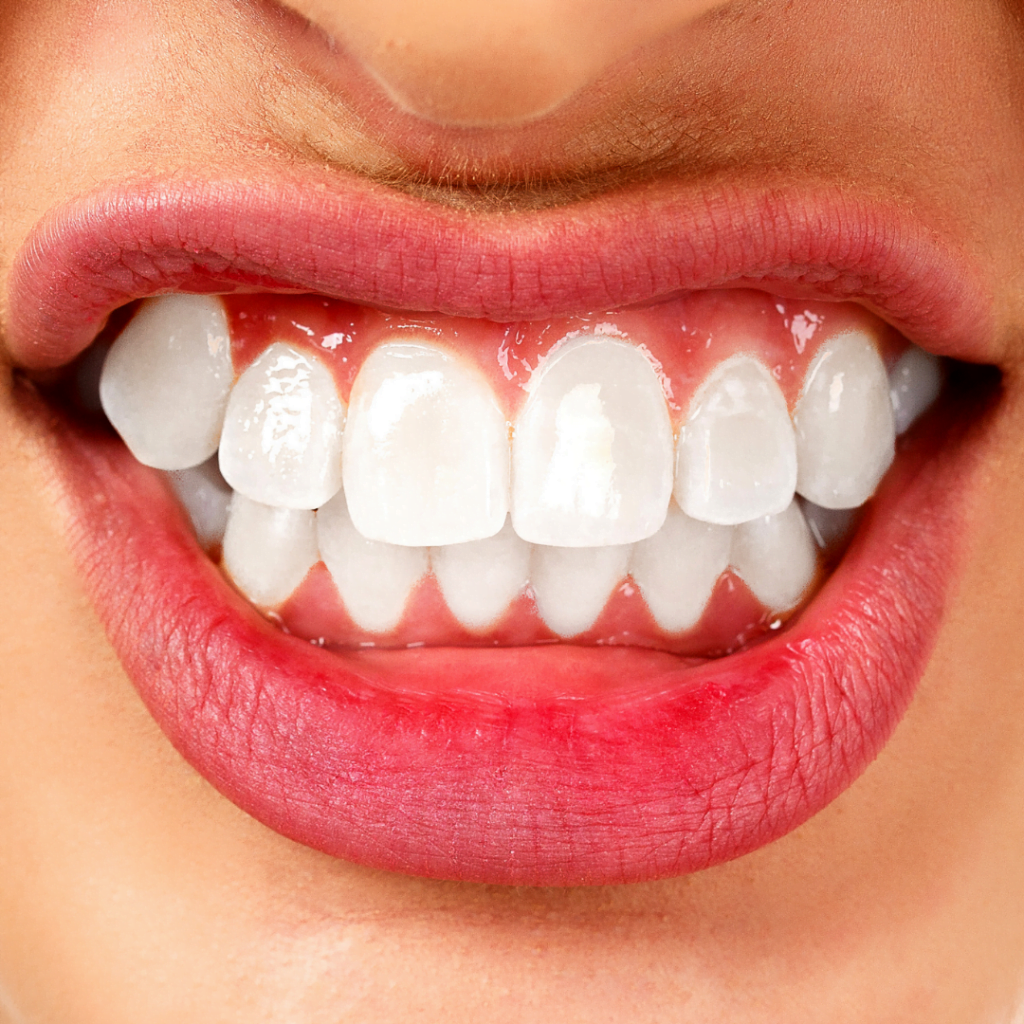
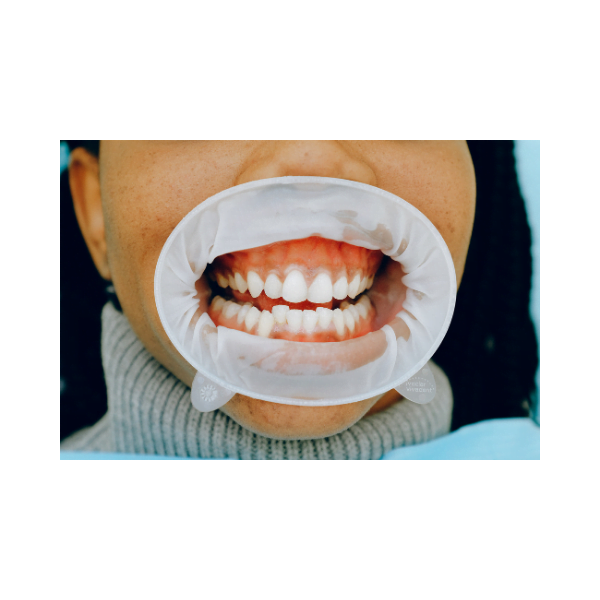
Hi, I want to add what I consider another very important cause of grinding, one which falls under the umbrella of muscular issues: hypothyroidism, including sub-clinical. Hypothyroidism causes muscle tension and can be relieved relieved by prescription hormones and supplemental magnesium. (Somewhat useful article here: http://www.webmedcentral.com/article_view/5371). These guards (I have 2 versions) have been lifesavers!